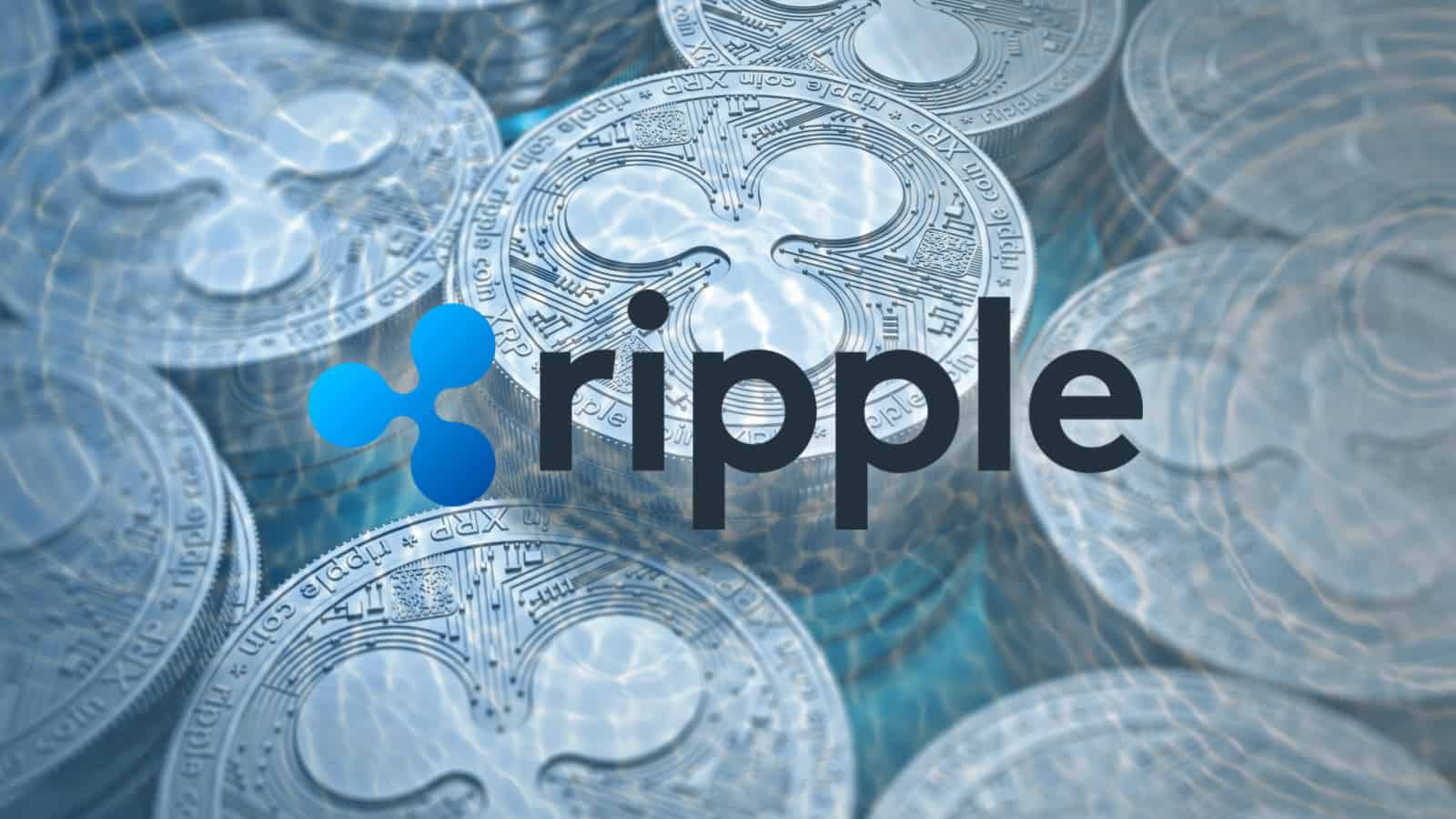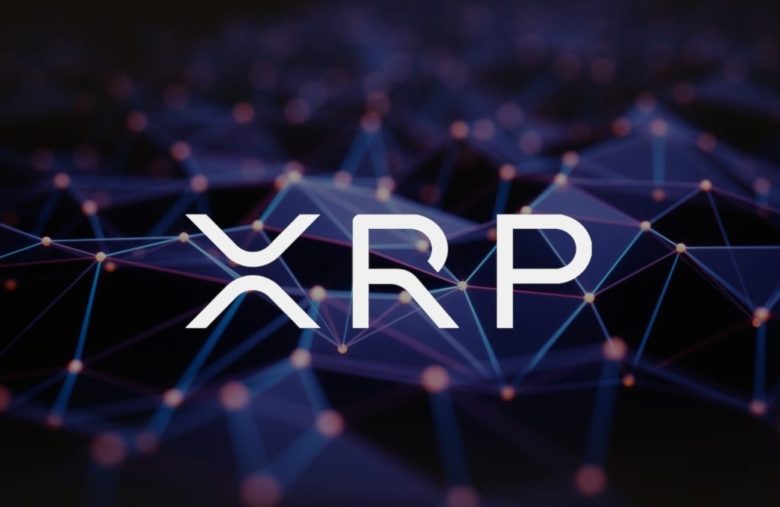XRP Cryptocurrency: A Beginner's Guide To Ripple's Digital Asset

Table of Contents
What is XRP and How Does it Work?
XRP functionality centers around its role as a bridge currency facilitating faster and cheaper international transactions on RippleNet, Ripple's payment network. Unlike cryptocurrencies like Bitcoin that rely on proof-of-work, XRP uses a unique consensus mechanism, enabling significantly faster transaction speeds and lower fees. This makes it attractive for businesses and financial institutions seeking efficient cross-border payment solutions.
- XRP's speed and low transaction costs: XRP transactions can be confirmed in a matter of seconds, a stark contrast to the minutes or even hours required by traditional banking systems. Transaction fees are also significantly lower, making it a cost-effective alternative.
- RippleNet's utilization of XRP: RippleNet, a global network of financial institutions, leverages XRP to facilitate seamless cross-border payments. This speeds up transactions and reduces costs for banks and their customers.
- The XRP Ledger and its decentralized nature: The XRP Ledger is a decentralized, public, and open-source blockchain that supports the XRP cryptocurrency. Its distributed ledger technology ensures transparency and security for all transactions.
- Transaction speed comparison: Compared to Bitcoin or Ethereum, XRP boasts significantly faster transaction processing times, making it ideal for real-time payments.
- Energy efficiency: XRP's consensus mechanism is far more energy-efficient than proof-of-work cryptocurrencies, contributing to a smaller carbon footprint.
Ripple vs. XRP: Understanding the Difference
It's crucial to understand the distinction between Ripple (the company) and XRP (the cryptocurrency). Ripple Labs is a technology company that developed RippleNet and the XRP Ledger. XRP, on the other hand, is a cryptocurrency that operates on the XRP Ledger and is used to facilitate transactions within the Ripple ecosystem. Think of Ripple as the creator and maintainer of the infrastructure, and XRP as the fuel that powers the system.
- Ripple as a technology company: Ripple provides financial solutions to banks and other institutions, enabling faster and more efficient cross-border payments.
- XRP as a cryptocurrency: XRP is a digital asset that is bought, sold, and traded on cryptocurrency exchanges. It is independent of Ripple Labs, although its value is closely tied to the success and adoption of Ripple's technology.
- The relationship between Ripple and the XRP community: While Ripple Labs developed XRP and plays a significant role in its ecosystem, the XRP Ledger is decentralized, and XRP has its own independent community of developers, users, and investors.
- Ripple's use of XRP on RippleNet: Ripple uses XRP to facilitate many transactions on RippleNet, but it's important to note that not all transactions on the network necessarily use XRP.
Investing in XRP: Risks and Potential
Investing in XRP, like any cryptocurrency investment, carries inherent risks. The cryptocurrency market is notoriously volatile, meaning the price of XRP can fluctuate dramatically in short periods. Therefore, thorough research and a clear understanding of your risk tolerance are crucial before investing.
- High volatility: XRP's price can experience significant swings, leading to substantial gains or losses in a relatively short time.
- Importance of diversification: It's advisable to diversify your cryptocurrency portfolio and not invest more than you can afford to lose.
- Factors affecting XRP's price: Market sentiment, regulatory changes, adoption by financial institutions, and overall market conditions all play a role in influencing XRP's price.
- Understanding your risk tolerance: Assess your financial situation and comfort level with risk before investing in XRP or any cryptocurrency.
- Secure storage of XRP: Use reputable and secure wallets to store your XRP holdings, safeguarding them against theft or loss.
Where to Buy and Store XRP
Buying and storing XRP requires careful consideration of security and platform reputation. Choose reputable cryptocurrency exchanges with robust security measures and a good track record. Similarly, select a secure wallet to store your XRP holdings safely.
- Reputable cryptocurrency exchanges: Several reputable exchanges list XRP, including Coinbase, Binance, and Kraken. Always research the exchange's security protocols and fees before using their services.
- Different types of XRP wallets: You can choose from hardware wallets (offering the highest level of security), software wallets (convenient but requiring careful management of private keys), and exchange wallets (generally less secure).
- Importance of keeping private keys secure: Your private keys are crucial for accessing your XRP. Never share them with anyone and store them securely offline if possible.
- Risks associated with storing XRP: Storing XRP on exchanges exposes it to potential hacking or exchange insolvency risks. Dedicated wallets offer greater security but require careful management of your private keys.
Conclusion
XRP, Ripple's native cryptocurrency, offers a unique approach to cross-border payments with its speed, low transaction costs, and energy efficiency. While it presents potential benefits, investing in XRP involves significant risks due to the inherent volatility of the cryptocurrency market. Remember, Ripple, the company, is distinct from XRP, the cryptocurrency. Understanding this distinction is vital for navigating the XRP ecosystem.
Ready to learn more about the potential of XRP cryptocurrency and its place in the future of finance? Continue your research, understand the risks involved, and consider diversifying your investment portfolio. Remember to always do your own research before investing in any cryptocurrency, including XRP.

Featured Posts
-
 Lady Raiders Suffer Home Loss To Cincinnati 59 56
May 01, 2025
Lady Raiders Suffer Home Loss To Cincinnati 59 56
May 01, 2025 -
 Kampen Rechtszaak Over Stroomvoorziening Nieuw Duurzaam Schoolgebouw
May 01, 2025
Kampen Rechtszaak Over Stroomvoorziening Nieuw Duurzaam Schoolgebouw
May 01, 2025 -
 De Bio Based Basisschool En De Noodzaak Van Een Noodgenerator
May 01, 2025
De Bio Based Basisschool En De Noodzaak Van Een Noodgenerator
May 01, 2025 -
 Xrp Price Prediction Will Xrp Hit 10 Ripples Dubai License And Resistance Break
May 01, 2025
Xrp Price Prediction Will Xrp Hit 10 Ripples Dubai License And Resistance Break
May 01, 2025 -
 2024 Nfl Draft Panthers Eighth Pick And The Pursuit Of Continued Success
May 01, 2025
2024 Nfl Draft Panthers Eighth Pick And The Pursuit Of Continued Success
May 01, 2025
Latest Posts
-
 Dallas Mourns The Loss Of Its 100 Year Old Star
May 01, 2025
Dallas Mourns The Loss Of Its 100 Year Old Star
May 01, 2025 -
 Death Of Beloved Dallas Star At 100
May 01, 2025
Death Of Beloved Dallas Star At 100
May 01, 2025 -
 Centenarian Dallas Star Passes Away
May 01, 2025
Centenarian Dallas Star Passes Away
May 01, 2025 -
 Dallas Icon Passes Away At Age 100
May 01, 2025
Dallas Icon Passes Away At Age 100
May 01, 2025 -
 Dallas Star Dies At 100
May 01, 2025
Dallas Star Dies At 100
May 01, 2025
